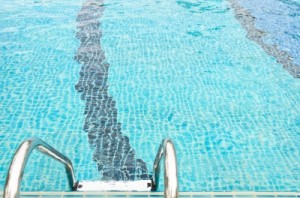 About five years ago, a parenting magazine for which I do a lot of freelance writing asked for my review on a safety product that had been mailed in to their offices by a PR agency. It was a wrist band that small children could wear around swimming pools, ponds and lakes. Immersion in water would set off a wireless alarm, letting adults know that their immediate attention was required.
About five years ago, a parenting magazine for which I do a lot of freelance writing asked for my review on a safety product that had been mailed in to their offices by a PR agency. It was a wrist band that small children could wear around swimming pools, ponds and lakes. Immersion in water would set off a wireless alarm, letting adults know that their immediate attention was required.
I said no.
Not because I’m a callous person, or immune to the dangers of drowning for babies, toddlers and non-swimmers of all ages. Two children under 6 years old died over this past holiday weekend in Montreal, and another remains in critical condition, as a result of inconsistent supervision around water just this past weekend alone. A total of 34 Quebec children have drowned so far in 2012. That’s a crazy number of avoidable deaths.
Water is dangerous. Parents and supervising adults need constant vigilance. While any tool that seems to offer additional supervision would seem to be a great idea, I’m not convinced. These kinds of products can also lead the adults who should be watching to get lazy, to stop paying constant, close attention. To forgetting to latch the gate. Or turning away for one moment to answer the phone.
Things don’t have judgement like people do. Kids pull bracelets off when adults aren’t looking. Batteries fail. Connections aren’t made.
It’s too easy to let something else do the watching when it should really be us.
I think about this every time someone asks me about Internet surveillance software for their kids and teens. Like the pool monitor, our initial instinct is to say “Yes, great! Let’s watch them in every way possible to keep them safe!”
But it doesn’t usually work out that way in actual practice. If you are using SocialShield or UKnowKids or McGruff to remotely monitor your kids’ activities online, then the temptation is to relax and stop asking them so many questions. Maybe you don’t need to connect their Facebook page to your email account so you can get notifications. Maybe you don’t need to regularly sit down with them and review their news feed, or the text messages on their phones. After all, you now have a fancy dashboard that shows you who they are talking to, what sites they are visiting and what photos they are posting online.
You’re still missing out on something. As with the pool safety monitor, you are missing out on the direct connection to your kid. You are missing out on the shared processing of all this information and communication. The chance to ask them about something they posted in casual conversation, or to remark on the cool gif they made or funny video they posted. And because this direct monitoring puts you in each others’ faces from time to time (with all the eye-rolling, groaning and moaning this may elicit from your kid), they actively self-censor what they do on the Internet.
This is exactly what you want, right? You want them to pause before they click “send” or “post” and think “Will this freak my mother/ father out?” Because if it won’t freak you out, it probably won’t be mistaken for bullying, or sexting or potentially embarrassing material that may prevent them from being elected to office in 25 years. The hope is that eventually they will learn to internalize this filter. Which is when you can pull back and give them a little more incremental freedom.
A recent survey by Cox Communications found 34% of tweens said they lied to parents about what they have been doing online; only 18% of parents knew about this. Why would we want to put even more distance between us by watching them from afar? That’s a rhetorical question actually. I know the answer — because our kids hate it. A 2011 Pew Internet study found that monitoring increased the number of arguments between parents and kids. But while it’s tempting to hide behind monitoring software to avoid the conflict that results from asking your 13-year-old daughter to log into her Facebook account with you, it doesn’t accomplish much.
With all those fancy surveillance tools, it’s just too easy for kids to forget mom and dad are watching, because it doesn’t come up in conversation all the time. It isn’t in their face. They are lulled into forgetting. And since the object isn’t to catch them doing something wrong (or drowning, heaven forbid, to extend the pool metaphor) but to keep them safe, that’s not much good.
So don’t send me an email telling me that the pool safety wristguard saved your nephew’s life or some Internet software stopped a bullying scandal, because I’m happy for you. Really. I’m glad harm has been avoided.
I don’t think these services or objects are inherently evil. But I do think they are the easy way out. They are a job half-done. They make it too easy to keep a constant, honest, eyes-peeled, mind sharp watch on our kids, at least until they are old enough to watch out for themselves, whether they are at the pool or up in their room with an iPad.

